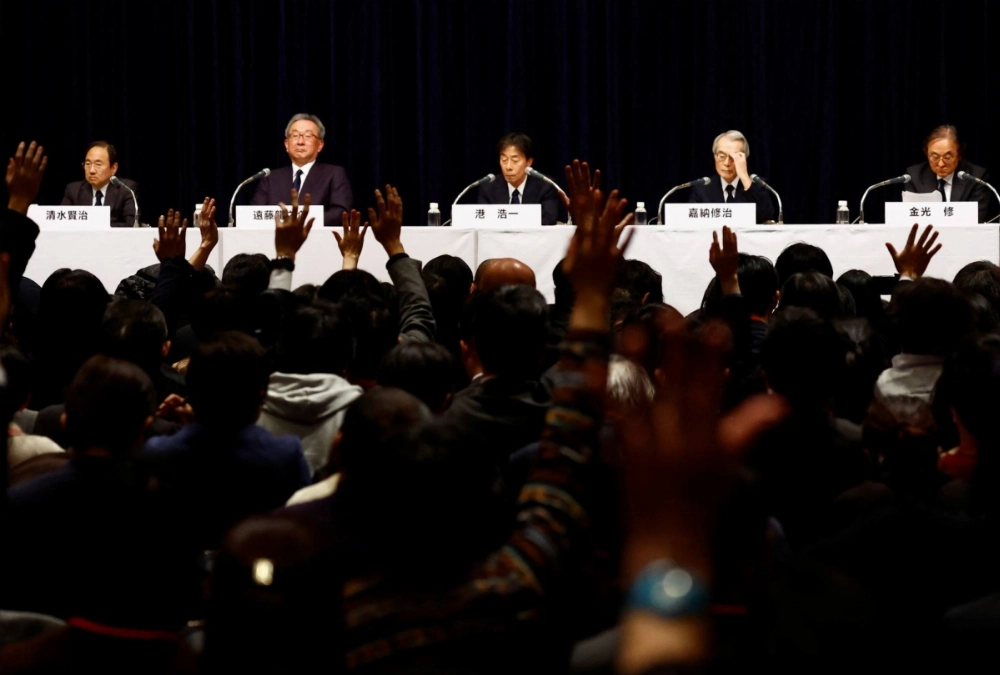Fuji Television is receiving both measured praise and mild criticism for its marathon news conference, with international crisis management consultants saying that the maximalist approach was commendable even though returns diminished as the hours wore on.
“Essentially, they’ve attempted to exhaust media speculation by sitting on stage as cannon fodder,” said Jonathan Buxeda, associate director at Sydney’s Cognito Media. By taking every question asked, the company was able to “condense the news cycle into days, rather than weeks or months.”
Fuji TV held a news conference on Monday to address allegations of sexual misconduct by Masahiro Nakai, a celebrity and former presenter for the broadcaster.


















With your current subscription plan you can comment on stories. However, before writing your first comment, please create a display name in the Profile section of your subscriber account page.